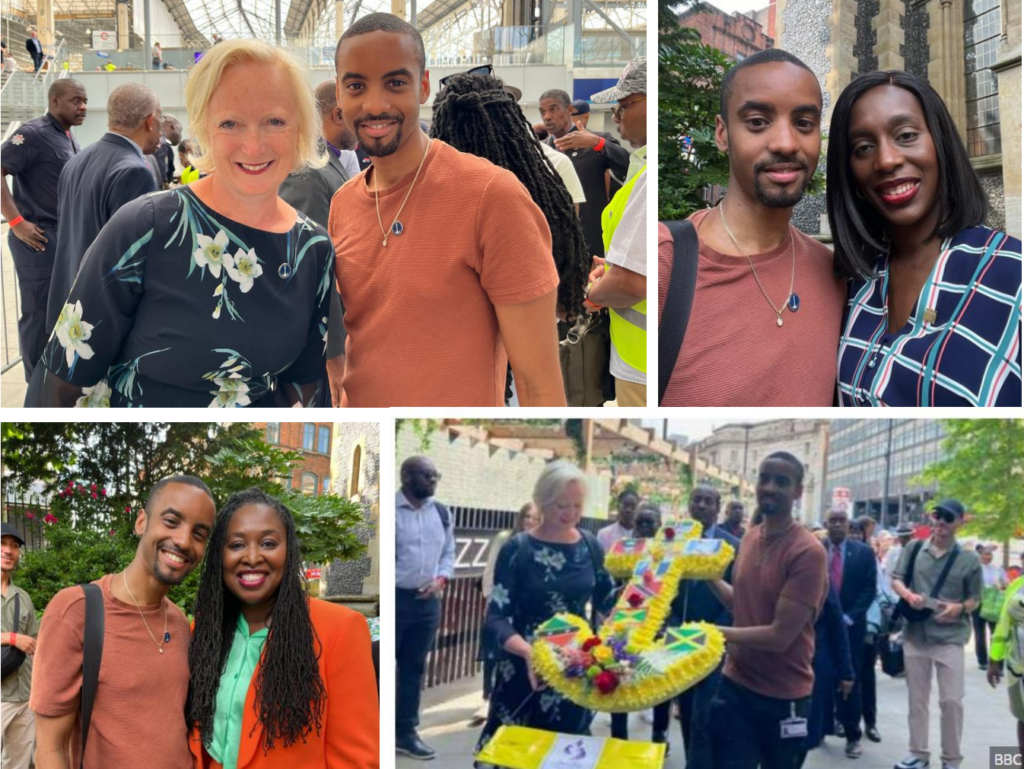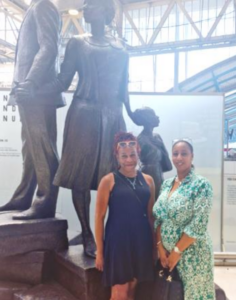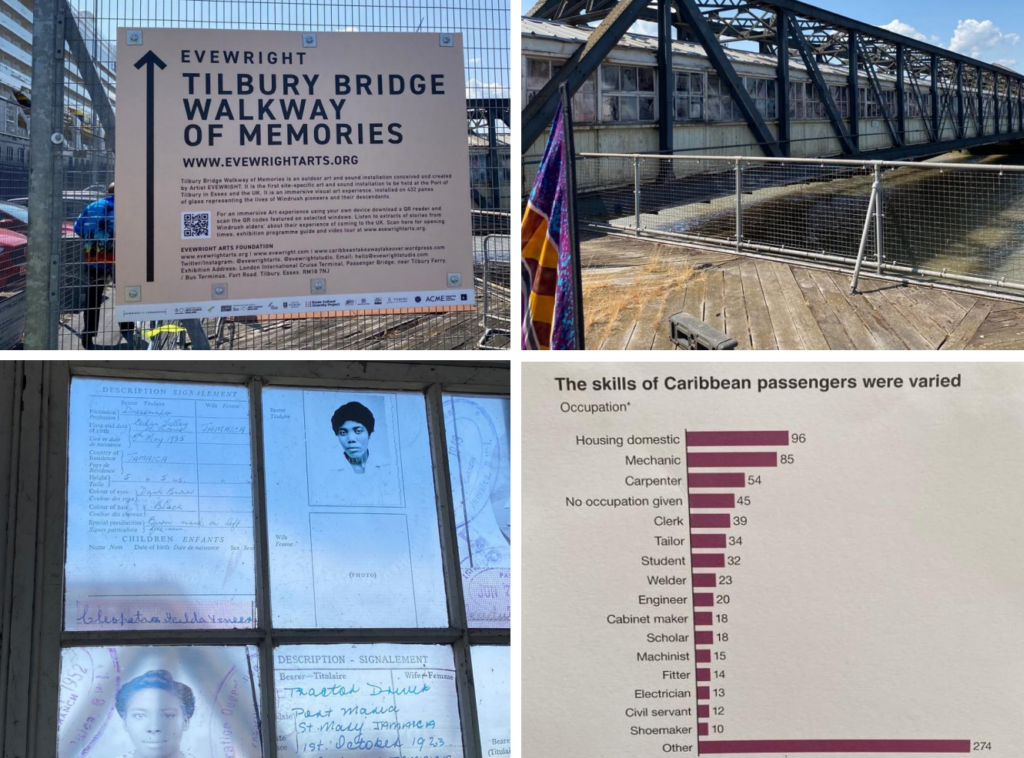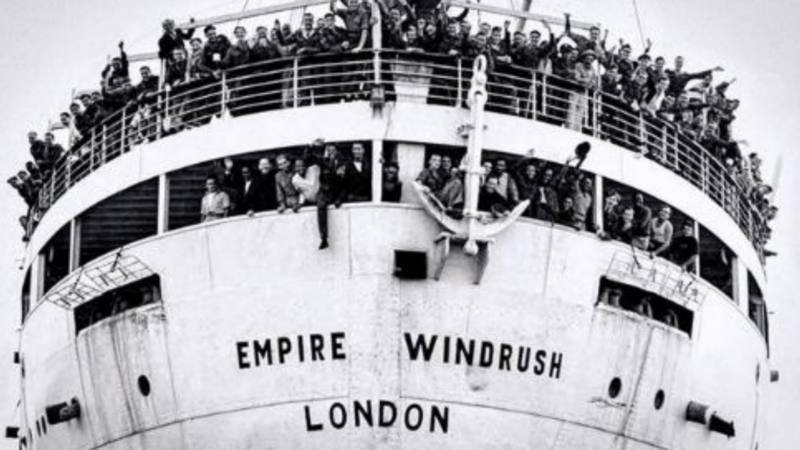The launch of the NHS on 5 July 1948 and the arrival of the Empire Windrush 13 days earlier on 22 June are inextricably linked. Many of the ship’s passengers took up jobs in the NHS.
Today, ethnic minority colleagues make up almost a quarter of the NHS workforce and 42% of medical staff.
Members of NHS staff from South West London attended a special 75th anniversary event at Tilbury Docks – the place where the Windrush landed – on Windrush Day, 22 June 2023.
Ross Anderson, Clinical Nurse Specialist at Kingston Hospital
Ross attended the Walk to Witness event in London on 22 June 2023 – an opportunity for local communities to mark the special event by walking from Waterloo station to Southwark Cathedral – approximately 1.4 miles.
Several of the walkers were asked to carry a floral replica of the Windrush ship’s anchor along the walk as way of remembering the original Caribbean passengers. Ross however, didn’t expect to carry it with Ruth May, Chief Nursing Officer for England.
Ross said “The Walk to Witness event was something really special. My nan Eugene came over to England in 1962 at the age of 25, to pursue a better life for herself and her small children, choosing to work as a nursing assistant for the NHS having been told that there were jobs that needed to be done to help build up a post-war Britain.
“At this period in time due to these invitations and promises of work, there was a large amount of immigration from the Caribbean and with it came a great amount of prejudice which was experienced by many.
“So celebrating Windrush today has really helped raise awareness of what happened all those years ago. And so it was great to see Ruth May, Sadiq Khan and other MPs acknowledging the many industries that the Windrush generation worked in and in such a special way. It just made me so proud to work for the NHS and be part of this historical moment.”

Debbie Fraser, Transformation Project Support Officer at NHS South West London

“My father emigrated from Jamaica to the UK in one of the early boats. He started off as post office van driver, delivering mail all over London.
“He then moved the family to Southampton, as it was calmer than London, and he became a bus driver and Special Constable.
“My Dad made a difference, he would arrange yearly bus trips for the local community and their families. He was given an OBE for his work.
“It was nice to meet other original Windrush settlers and learn about their stories.”
Sedina Agama, Chief Pharmacist for Merton and Wandsworth at NHS South West London
“My husband’s maternal grandmother came to the UK from the island of Montserrat in 1952. She lived in Tooting and worked as a domestic at St George’s Hospital. As our boat from London Waterloo docked, we started to imagine what it must have felt like for our ancestors – anxiety, relief, fear, excitement and mixed emotions.
“This turned to awe as we learnt about the experiences of our ancestors and how difficult it was for them not only leaving their families behind and settling in a new country, which was alien to them, but also how hard it was for them to be accepted. It was humbling to read the life stories.
“Many of them were housed in a network of tunnels below Clapham South which were designed as refuges during the wartime. It explained why there are many descendants of that generation in south west and south east London, in particular Brixton and Tooting where the labour exchange was, as they had to go there to register for work.”

“My nan was part of the Windrush generation”
Melissa Berry, Programme Director for Equality, Diversity and Inclusion, told us why the NHS is part of her DNA when we asked her how she felt about the NHS turning 75.
